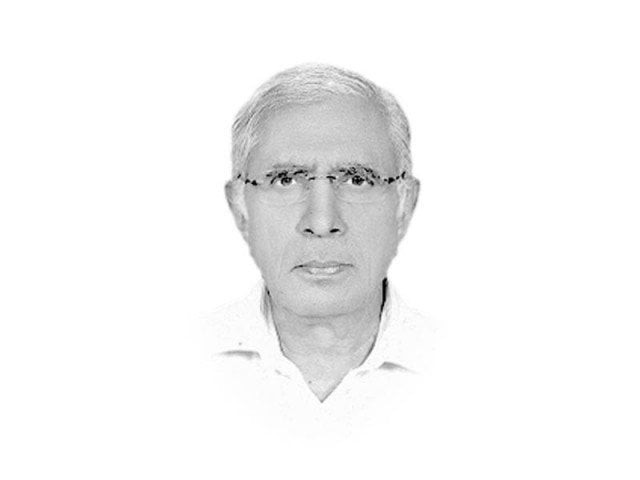Demands of democracy
The opposition’s main role is to question the government of the day and hold them accountable to the public

The writer served as executive editor of The Express Tribune from 2009 to 2014
The opposition has the right to oppose the government of the day. And when it is fresh out of an election, the mood of the defeated opposition cannot be expected to be one of amity and cooperation. And if its main leadership is behind bars undergoing severe judicial inquiry, the mood would be doubly foul.
On the other hand, if a party that has been in wilderness for decades were to win an election and form government, it is but natural that it would take some doing for it to give up its instinctive outbursts against everything that would seem to be trying to oppose it. Rather than start doing governance for which it had had no prior experience, the fresh out of election government tends to fall back on its vote getting slogans against the out-going government party to cover for its lack of governing capacities.
That is perhaps why things look rather unsettled on the political front in the country currently even after the lapse of almost five weeks since the installation of the PTI-led coalition government. More so when the economy is in a tail-spin and the new government is trying to grapple with the situation knowing not where to start and how to start plugging the holes and creating new income generating avenues.
In the run-up to the election the PTI had promised to accomplish miracles in the first 100 days of taking over the reins of the government. But even before the first week in power was out, the PTI-led government was found appealing to the nation to give it at least two years before starting to pick holes in its policies which are still being made and unmade and then remade.
But the PML-N faction of the Opposition does not seem to be in the mood to give the new government even a single day of respite, whereas the PPP faction of the Opposition seems to have decided to oppose the government on issue-to-issue basis. But in the ultimate analysis the government appears to be under severe pressure.
The numbers are also not too much in favour of the government. At the federal level the PTI has put together a precarious majority with the help of a number of smaller parties having their own respective mandates different from that of the PTI. It is comfortably placed in K-P. In Sindh, it sits on the Opposition benches with the government in PPP hands. In Balochistan also, the PTI-led coalition government is not all that comfortable. And in the country’s biggest province — Punjab — the coalition government is standing on a wafer-thin majority.
The political picture that appears to have emerged after the election and considering the inexperience of the ruling coalition as well as the totally foul mood of at least the PML-N faction of the Opposition, it appears as if the country is heading for a constitutional crisis of the worst kind.
But no well-wisher of the country would like that to happen. In the interest of the nation and the country the two — the coalition government and the two opposition factions should at least for the first two to three years of the current term try to focus more on jointly lifting the country out of its immediate socioeconomic and political problems. For that to actually happen, the coalition government would need to take the first step and include the Opposition’s input in major policy formulations.
The leadership of the coalition government needs to realise that the Opposition represents an alternative government, and is responsible for challenging the policies of the government and producing different policies where appropriate. So, a pleasant political rhythm could be set by the government, if it were to consult the Opposition on major policy issues and also on major administrative appointments. That is how democracy is run in civilised societies.
Published in The Express Tribune, September 29th, 2018.
Like Opinion & Editorial on Facebook, follow @ETOpEd on Twitter to receive all updates on all our daily pieces.
















COMMENTS
Comments are moderated and generally will be posted if they are on-topic and not abusive.
For more information, please see our Comments FAQ